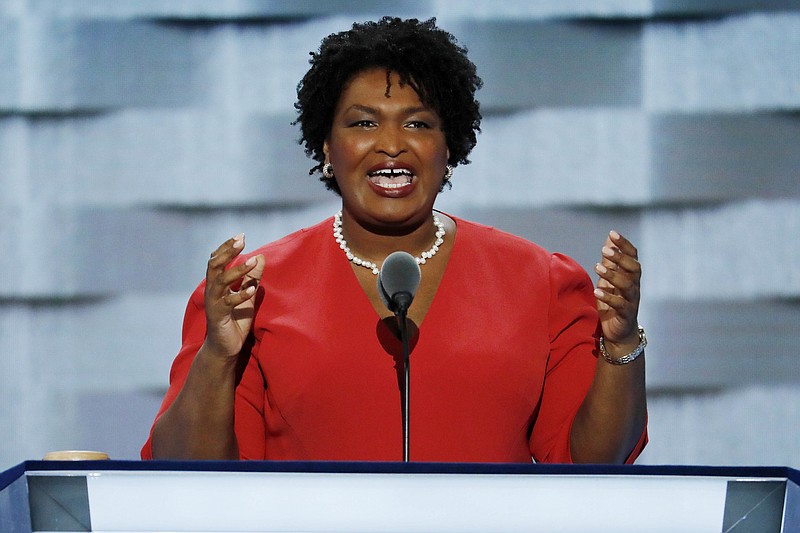ATLANTA - Stacey Abrams took the first step toward a run for Georgia governor on Tuesday, filing paperwork to form a campaign committee for the 2018 contest to replace term-limited Gov. Nathan Deal.
Abrams, the top Democrat in the Georgia House, is widely expected to run and has built a profile in the national party, including an appearance at last year's Democratic National Convention. Several other Democrats, including state Rep. Stacey Evans of Smyrna and Columbus Mayor Teresa Tomlinson, still are considering bids.
Three Republicans already have launched full-on campaigns: Lieutenant Governor Casey Cagle, state Sen. Hunter Hill of Smyrna and Secretary of State Brian Kemp.
Abrams, an Atlanta attorney, has represented portions of Atlanta, DeKalb County and the city of Decatur since 2007 and began leading House Democrats in 2010.

While she often says the Democratic minority must provide alternatives to plans proposed by the GOP majority, Abrams has worked with Deal and Republican legislative leaders on contentious issues, including changes to the state's HOPE Scholarship program when lottery funds failed to keep up with demand.
She made voting registration a signature issue, founding an effort called the New Georgia Project in 2014 that focused on registering minorities to vote. The move has earned Abrams frequent mentions in national media outlets, a speaking slot at the DNC and made her a top surrogate for Hillary Clinton in Georgia during the 2016 presidential race.
"In the Trump era, we need state leaders who understand that a governor must serve every resident and face each challenge head on," Jennifer Granholm, a former governor of Michigan, said in a statement. "Stacey has a model and a track record that cannot be beat."
The New Georgia Project's work also pitted Abrams against Kemp, one of the GOP hopefuls for governor. As secretary of state, Kemp began an investigation in 2014 accusing the group of fraudulently registering voters. Abrams' group and other voting-rights organizations sued, accusing Kemp of delaying thousands of applications ahead of the midterm elections. A judge declined to act in the case.
Some Democrats have also questioned whether the effort did anything to make the party more competitive, considering Republicans' recent track record.
Hillary Clinton lost to President Donald Trump here by about 5 points; former President Barack Obama lost the state in 2008 by about the same margin and by 7 points in 2012. Deal defeated Democrat Jason Carter in the 2014 gubernatorial contest by about 8 percentage points. Democrat Michelle Nunn also fell to Republican David Perdue by a similar margin in the contest for an open U.S. Senate seat that year.
Still, Democrats in Georgia hope to link the eventual GOP nominee for governor to Trump. They point to the groundswell of support this spring for an unknown Democrat in a special election to fill the 6th Congressional District seat. Party observers acknowledge that a special election in a conservative congressional district isn't the equivalent of a statewide race. They still expect Trump to be used as a foil in midterm contests nationwide.
"Republicans have been willing to do that and been effective doing that for years against former President (Barack) Obama," said Howard Franklin, a Democratic consultant. "Even candidates without any ability to affect federal policy still invoked his name. We'll have to see whether that playbook works in reverse."
Wendy Davis, a consultant from northwest Georgia, said she wants every Democrat seeking statewide office to compete in rural communities and continue building support in an increasingly diverse state.
"It doesn't matter how well you do in traditionally Democratic areas if you bleed out in more rural areas," Davis said. "There's this new energy and enthusiasm, with people coming out of the woodwork wanting to be involved who never have been before."
